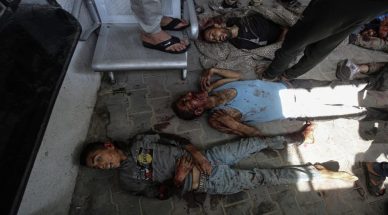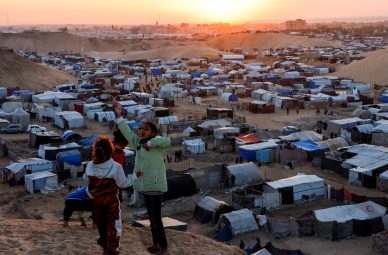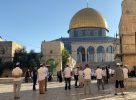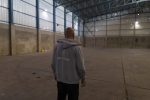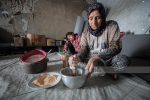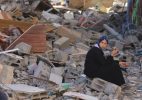GAZA, (PIC)
Israel’s demands to disarm the resistance in the Gaza Strip are intensifying, presented as a fundamental condition for any political agreement that could lead to halting the ongoing war of extermination in the Strip, which has been ongoing for 18 months. These demands, rejected by the resistance factions, are based on an Israeli vision that considers the presence of weapons a direct threat to its security.
These disarmament demands come within the framework of the occupation authorities’ attempt to bolster their security position and politically strip the resistance factions of their ability to bear arms—as a means of self-determination and the liberation of Palestinian land. This raises questions about the legitimacy of such demands and, even before that, about the meaning of the weapons Israel seeks to remove, in contrast to the vast air, land, and sea arsenal Israel possesses, along with uninterrupted supply lines since October 7, 2023.
Resistance in international law
When considering the nature of the weapons the resistance is being pressured to give up—presented as if it were a conventional army in exchange for stopping the bloodshed in the Gaza Strip—several thousand light weapons such as Kalashnikovs, anti-armor projectiles, explosive devices, and locally manufactured rockets do not pose a threat in terms of strategic and operational armament when compared to Israel’s military capabilities, which are backed by the United States and the West.
According to international humanitarian law—specifically the Geneva Conventions and their Additional Protocols—peoples under occupation have the right to resist occupation by all means, including armed struggle, provided that they adhere to the rules of international humanitarian law, such as distinguishing between civilians and combatants, and not deliberately targeting civilians.
Article I of the Additional Protocol of 1977 annexed to the 1949 Geneva Conventions states that the convention applies in “armed conflicts in which peoples are fighting against colonial domination and alien occupation and against racist regimes in the exercise of their right of self-determination.”
Therefore, armed struggle against occupation is not prohibited as long as it is conducted within the framework of international law. In fact, it is recognized as a legitimate means to achieve freedom and independence. This makes the Israeli demand to disarm the resistance before reaching a just political settlement a contradiction of this legal principle.
Political blackmail
Political writer Ashraf Sahly affirms that conditioning any agreement to end the war on the disarmament of the resistance is a form of blackmail, especially considering the limited military capabilities of the resistance in practice, compared to the extensive weaponry Israel possesses and uses to carry out brutal tactics of unjustified killings.
In his article titled “What Is the Resistance Weapon That Israel Wants to Remove from Gaza?”, he argues that an objective discussion of Israel’s demand to disarm the resistance—based on military and political realities—leads to the conclusion that “the goal of militarily weakening the resistance has already been achieved by Israel, even if only partially. It is inconceivable that the resistance has not lost much of its strength compared to before this brutal war. However, this does not mean it has lost its ability to deter, and remain resilient, and stand firm.”
Sahly emphasizes in his article, published on the “Arabi 21” platform, that the idea of disarming the resistance is completely unfeasible—not because it is a non-negotiable issue or one of the Palestinian people’s constants and legitimate rights to defend their survival and confront the occupation without erasing their existence or identity—but because there simply is no weapon to disarm in the first place. Rather, they are Palestinian attempts to develop weapons, to deter, and to survive—not weapons in the conventional sense that can be seized.
The people are the weapon
Sahly adds that from a “military perspective unjustifiably held by the Israelis, the resistance is now almost disarmed, at least theoretically or symbolically, or perhaps they are doing so as a tactic—but that’s what appears on the ground. Much of their capacity was exhausted in previous attempts to confront acts of genocide. In fact, their weapons are originally light and defensive. When used with intelligence, efficiency, and flexibility, they can cause confirmed damage—but not decisive outcomes. It’s unlikely, for instance, that something like the Al-Aqsa Flood could be repeated every few years. So what disarmament are the Israelis really referring to?”
He argues that the weapon Israel is talking about removing from the Gaza Strip “is the Palestinian people themselves. Either remove the people through displacement, uprooting, or extermination—or perhaps both—because the real military weapon of the resistance, with its limited capabilities, is sourced from the people themselves. In reality, the armament is very simple, superficial, and limited—especially compared to those Israel considers military threats. This has been proven since Israel’s inception, not only during the recent war of extermination. The matter does not even rise to the level of an actual disarmament—because the (resistance’s) weapon is modest, light, simple, and locally produced.”
The United Nations Charter affirms the right of occupied peoples to self-determination and views resistance to occupation as a legitimate right according to international norms, rooted in the concept of human rights. Many experts emphasize that disarmament should only occur within a political process that includes the recognition of the rights of the Palestinian people—a point highlighted by Francesca Albanese, the United Nations Special Rapporteur on human rights in the Palestinian territories.
Francesca Albanese stresses the necessity of allowing the Palestinian people their right to self-determination, “meaning the right to exist as a people. It is wrong to allow Israel to continue its control over the Gaza Strip or to continue governing the West Bank.”
In an interview with Al-Araby Al-Jadeed newspaper, she stated that ethnic cleansing has been a constant feature in the lives of Palestinians under Israeli rule since the Nakba, manifesting in various forms—including what she described as a “silent Nakba.”
Albanese described the war of extermination in the Gaza Strip as the most sadistic and militarized since the end of World War II in 1945, with people being killed by the dozens and hundreds within hours.


